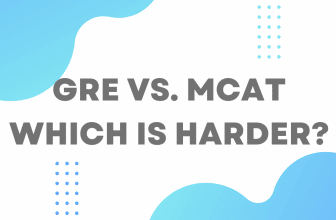
Key takeaway:
- The lowest MCAT score accepted into med school varies: There is no set minimum score requirement for medical school admissions. Each school has its own criteria and considers multiple factors, such as GPA, extracurricular activities, and letters of recommendation, in addition to MCAT scores.
- A low MCAT score can impact medical school admissions: While there is no specific definition of a low MCAT score, it can limit the number of schools that may consider an applicant. Admissions committees often use MCAT scores as an initial screening tool, so a low score may result in fewer interview invitations.
- Other factors are also important in admissions: Admissions committees consider various factors in addition to MCAT scores, such as undergraduate GPA, experiences in healthcare or research, personal statements, and interviews. These factors can help compensate for a lower MCAT score and demonstrate an applicant’s suitability for medical school.
Introduction

When it comes to getting into medical school, one of the top concerns for aspiring doctors is their MCAT score. Many wonder what the lowest acceptable score is to have a chance at admission. In this section, I will delve into the importance of MCAT scores in medical school admissions and why they hold such weight in the selection process. We’ll explore the significance of MCAT scores as a predictor of academic aptitude and the role they play in determining an applicant’s readiness for the rigorous challenges of medical school.
Understanding the Importance of MCAT Scores in Medical School Admissions
The significance of MCAT scores in medical school admissions is crucial for aspiring individuals to comprehend. Understanding the importance of these scores aids in the evaluation and selection process of applicants seeking admission into medical schools. MCAT scores serve as an essential metric that helps determine an applicant’s aptitude and potential for success in their medical education journey.
MCAT scores are scaled and scored using a standardized methodology, providing a consistent basis for comparison among applicants. This ensures fairness and reliability in assessing candidates’ academic abilities and readiness for medical school. It is important to note that the minimum score requirements may vary across different medical schools, taking into account factors such as competitiveness, program reputation, and applicant pool characteristics.
A low MCAT score may have an impact on an applicant’s chances of admission to medical school. However, it is not always determinative of one’s entire application. Admissions committees consider a multitude of factors when evaluating applicants holistically, including personal statements, letters of recommendation, extracurricular activities, and interview performance. Opportunities may still exist for individuals with low MCAT scores to demonstrate their attributes and potentials through other aspects of their application.
Blueprint MCAT Prep Course Review
The average MCAT score holds significant weight in medical school admissions. Admissions committees often consider this score as a benchmark to assess an applicant’s academic capabilities compared to their peers. Factors such as test preparation, study resources utilized, and individual motivations can influence the average MCAT score obtained by applicants.
A good MCAT score stands out due to its alignment with the expectations set by medical schools and demonstrates excellent academic aptitude. Factors that contribute to this distinction include scoring above the average range, showcasing exceptional knowledge in key subject areas tested by the exam, demonstrating critical thinking skills, and displaying comprehensive understanding of scientific principles vital for successful progression through medical education.
What’s the Lowest MCAT Score Accepted into Med School? Just remember, aim low and you might end up practicing medicine on a deserted island.
Acceptance rates into medical schools can be correlated with applicants’ MCAT scores. Higher MCAT scores generally lead to higher acceptance rates due to the perceived high level of academic competency and preparedness for the rigorous curriculum. Understanding these acceptance rates based on MCAT scores can serve as a guide for applicants in setting realistic expectations and target schools that align with their capabilities.
In addition to MCAT scores, admissions committees also consider other factors in the evaluation process. GPA, or grade point average, is another essential component that provides insight into an applicant’s academic performance throughout their undergraduate studies. State residency, socioeconomic background, and diversity considerations are among several other factors taken into account when assessing applicants’ suitability for admission to medical school.
What’s the Lowest MCAT Score Accepted into Med School?
When considering the lowest MCAT score accepted into medical school, it is important to recognize that the minimum score requirement varies across different institutions. Each medical school has its own set of criteria for admissions, beyond just the MCAT score. In this section, we will explore the details of this variability and why it exists.
Additionally, we will take a closer look at how MCAT scores are scaled and scored, shedding light on the standardized process used to evaluate applicants. These insights will provide a deeper understanding of the complexities involved in the admissions process for aspiring medical students.
The Minimum Score Requirement Varies
The minimum score requirement for medical school admissions varies depending on various factors. These factors include the specific medical school, the competitiveness of the applicant pool, and the overall strength of the application. Admissions committees consider a range of criteria beyond just MCAT scores in their decision-making process. To provide a visual representation of the variation in minimum score requirements, a table can be created. This table would include columns such as Medical School Name, Minimum MCAT Score Requirement, and Additional Factors Considered in Admissions. The table would display actual data from different medical schools, showcasing the varying minimum score requirements and highlighting other factors that are taken into account. In addition to MCAT scores, medical school admissions committees also consider factors such as GPA, letters of recommendation, extracurricular activities, and personal statements. These additional factors help provide a more comprehensive evaluation of applicants’ overall qualifications. It is important for applicants to understand that while MCAT scores play a significant role in admissions decisions, they are not the sole determining factor. In a real-life situation, Sarah applied to multiple medical schools with an MCAT score slightly below the average score required by most schools. However, she had an exceptional GPA and strong letters of recommendation from renowned researchers she had worked with during her undergraduate studies. Despite her lower MCAT score, Sarah was still accepted into a prestigious medical school due to her impressive academic achievements and compelling personal attributes showcased in her application. This serves as an example of how other factors beyond MCAT scores can compensate for lower scores and contribute to successful admissions outcomes. MCAT scores are like the Richter scale for intelligence, except instead of measuring earthquakes, they measure your chances of getting into med school.
How MCAT Scores are Scaled and Scored
MCAT scores are scaled and scored using a specific process that involves converting the raw number of correct answers into a scaled score. This ensures that scores from different versions of the exam are comparable. The process takes into account the difficulty level of the questions and adjusts the scoring accordingly. The scaled scores range from 472 to 528, with each section (Biological and Biochemical Foundations of Living Systems, Chemical and Physical Foundations of Biological Systems, Psychological, Social, and Biological Foundations of Behavior, and Critical Analysis and Reasoning Skills) receiving a separate score. These scores are then combined to create a total MCAT score that medical schools use for admissions decisions.
To provide a clearer understanding, here is a breakdown of how MCAT scores are scaled and scored:
This video illustrates how the raw score is adjusted based on the difficulty level of the questions to generate a scaled score for each section. This allows for fair comparisons between test takers regardless of which version of the exam they took.
Further details about MCAT score scaling include factors like question distribution within each section, overall test performance, and statistical procedures used to determine scaled scores for each section. These details ensure that all MCAT test takers are evaluated fairly based on their performance.
To maximize your chances of achieving a high MCAT score, it is recommended to focus on thorough preparation using reliable study materials, practice exams, and seeking guidance from experts or tutors. Additionally, developing effective time management strategies during the test can help optimize your performance.
By understanding how MCAT scores are scaled and scored, you can better gauge your performance in relation to other applicants and make informed decisions regarding medical school admissions strategies.
What’s a Low MCAT Score?
When it comes to the MCAT score and medical school admissions, understanding what constitutes a low MCAT score is crucial. In this section, we’ll explore the impact of low MCAT scores on medical school admissions. We’ll delve into the factors that admissions committees consider when evaluating applicants with lower scores and how it may affect the chances of acceptance. Additionally, we’ll discuss the opportunities and limitations that individuals with low MCAT scores may encounter in their pursuit of a medical career.
Sub-heading: The Impact of Low MCAT Scores on Medical School Admissions
Low MCAT scores can have a significant impact on medical school admissions. Admissions committees heavily consider these scores when evaluating applicants, as they serve as a measure of an individual’s proficiency in key areas such as biology, chemistry, and critical thinking skills.
A low MCAT score may raise concerns about an applicant’s ability to handle the rigorous coursework and challenges of medical school. It is crucial for aspiring medical students to aim for competitive MCAT scores to maximize their chances of acceptance into reputable medical schools.
A low MCAT score can potentially limit the number of medical schools that will consider an applicant. Many institutions have minimum score requirements that prospective students must meet in order to be considered for admission. These minimums vary from school to school and may also depend on other factors such as GPA and extracurricular involvement. Furthermore, even if a school does not have an explicit minimum score requirement, a low MCAT score may still negatively impact an applicant’s chances of acceptance.
In addition to limiting the number of potential schools, a low MCAT score can also affect an applicant’s competitiveness compared to other candidates with higher scores. Medical school admissions are highly competitive, and applicants with strong MCAT scores are often given priority consideration. Admissions committees use these scores as a screening tool to identify applicants who demonstrate strong academic abilities and potential for success in medical school.
To maximize their chances of success, aspiring medical students should strive for competitive MCAT scores through thorough preparation and dedicated study efforts. This involves understanding the format and content of the exam, seeking out resources and study materials, and utilizing effective study strategies. Additionally, applicants should also focus on other aspects of their application such as maintaining a strong GPA, participating in relevant extracurricular activities, and obtaining valuable clinical or research experiences.
Navigating the world of med school admissions with a low MCAT score is like trying to perform heart surgery with a spork – it’s not ideal, but it’s possible with some creativity and persistence.
Opportunities and Limitations with a Low MCAT Score
A low MCAT score presents both opportunities and limitations for aspiring medical school applicants. Here are three key points to consider:
- Unique Pathways: Students with lower MCAT scores may have the opportunity to explore alternative paths into medical school, such as participating in post-baccalaureate programs or pursuing a graduate degree in a related field. These pathways can provide additional academic preparation and demonstrate a commitment to the medical profession.
- Targeting Specific Medical Schools: Some medical schools may be more lenient towards lower MCAT scores, especially if applicants possess exceptional qualities or experiences that align with the school’s mission and values. Researching and targeting these schools can increase the chances of acceptance despite a low MCAT score.
- Limitations on School Selection: While some medical schools are more flexible with lower MCAT scores, many highly competitive institutions prioritize higher scores during their admissions process. This limitation means that applicants with low MCAT scores may need to broaden their pool of potential schools and consider less competitive options.
It is important for applicants with low MCAT scores to strategically navigate these opportunities and limitations by conducting thorough research on different pathways and targeted medical schools. Keep in mind that presenting a well-rounded application highlighting strengths outside of test performance will greatly enhance chances of acceptance.
Pro Tip: Seek guidance from pre-medical advisors, mentors, or professionals within the healthcare field who can provide valuable insights and advice tailored to your unique situation.
Getting an average MCAT score is like aiming for a C in med school; it might get you in, but you won’t be the star of the show.
What’s the Average MCAT Score?
When it comes to gaining admission into medical school, the average MCAT score plays a crucial role. Understanding the importance of this score can give aspiring students a clearer perspective on their chances of acceptance. In this section, we will explore the significance of the average MCAT score for admissions. Additionally, we will uncover the various factors that can influence this score, shedding light on the complex and multifaceted nature of the medical school application process. With the right insights into these aspects, candidates can better navigate their path towards achieving their dream of becoming a healthcare professional.
Importance of the Average MCAT Score for Admissions

A significant aspect regarding medical school admissions is the significance of the average MCAT score. This average score plays a crucial role in determining an applicant’s eligibility for admission. It serves as a standardized metric to assess a student’s knowledge, aptitude, and readiness for medical education.
Admissions committees utilize the average MCAT score as an essential benchmark to evaluate applicants’ capabilities and potential success in medical school. A higher average MCAT score indicates a stronger foundation in scientific knowledge and critical thinking skills, reassuring admissions officers about an applicant’s academic preparedness. Moreover, it helps them identify candidates who have excelled in their studies and have the potential to perform well throughout medical school.
While the average MCAT score is vital, it is not the sole determinant of admission decisions. Admissions committees consider other factors such as personal statements, letters of recommendation, extracurricular activities, and interviews to gain a holistic perspective of an applicant’s profile. Nonetheless, achieving a competitive average MCAT score significantly enhances an individual’s chances of securing admission to their desired medical school.
In illustrating the importance of the average MCAT score for admissions, let us consider a true story that exemplifies its impact. Sarah, an aspiring medical student with a passion for neuroscience research, had dedicated countless hours to studying for the MCAT while balancing her academic responsibilities. Despite her outstanding GPA and strong extracurricular involvement in community service initiatives related to healthcare advocacy, Sarah was concerned about her below-average MCAT scores. However, with perseverance and determination, Sarah sought guidance from mentors who helped her improve her study techniques and sharpen her test-taking skills. Consequently, she achieved a remarkable increase in her average MCAT score, effectively showcasing her dedication to improving herself academically. This improvement played a crucial role in securing acceptances from several prestigious medical schools.
Sarah’s story demonstrates how individuals can overcome initial setbacks by recognizing the importance of the average MCAT score and taking proactive measures to improve their performance. Admissions committees recognize the effort and growth demonstrated through such achievements, making a compelling case for the significance of the average MCAT score in medical school admissions. Ultimately, aspiring medical students should strive to achieve a competitive average MCAT score to increase their chances of gaining admission to their desired medical school.
Unleash your inner genius or pray for a generous curve, factors that can influence your average MCAT score!
Factors That Influence the Average MCAT Score
Factors influencing the average MCAT score can significantly impact an applicant’s chances of being accepted into medical school. These factors play a crucial role in measuring an applicant’s academic abilities and potential for success in the medical field.
- The difficulty level of the MCAT questions determines how well-prepared an individual is for the rigors of medical school.
- Time management skills during the exam affect the ability to answer questions accurately and efficiently.
- Prior academic preparation, such as coursework and study habits, contribute to individual performance on the MCAT.
- Access to resources like study materials and practice tests can influence an individual’s readiness for the exam.
- Analyze level of familiarity with test format is critical as it allows applicants to navigate complex question types more effectively.
- Mental endurance plays a key role because long duration test exams will mean that tiredness may decrease concentration and scores might go down.
Furthermore, possessing these advantages can provide individuals with a better chance of obtaining higher scores on the MCAT. Overall, several factors contribute to an applicant’s average MCAT score. By understanding these influences, applicants can better prepare themselves for the rigorous demands of medical school admissions.
According to data gathered from medical school admissions, research indicates that various factors influence an individual’s average MCAT score. Finding a good MCAT score is like finding a unicorn, except this mythical creature doesn’t determine your future.
What’s a Good MCAT Score?
When it comes to aspiring medical students, the question of what constitutes a good MCAT score is a common concern. In this section, I will delve into the factors that play a crucial role in determining a good MCAT score for med school admissions. By exploring the admissions process and the average scores of accepted applicants, we can gain insight into the expectations and standards set by medical schools.
Additionally, we will examine the factors that can make a good MCAT score stand out among other applicants, shedding light on what it takes to make a competitive application.
Determining a Good MCAT Score for Med School Admissions
Determining an Optimal MCAT Score for Medical School Admission
To ensure successful admission into medical school, it is crucial to understand what constitutes a good MCAT score. Here are five key points to consider:
- MCAT Scoring Scale: The MCAT exam is scored between 472 and 528, with 500 being the average score. Admissions committees typically look for scores that exceed the average to gauge an applicant’s proficiency.
- Competitiveness of Medical Schools: Each medical school has its own set of standards when it comes to selecting candidates based on their MCAT scores. Highly competitive schools often require higher scores, while less competitive schools may accept lower scores.
- Holistic Evaluation: While MCAT scores play a significant role in the admissions process, they are not the sole determining factor. Medical schools also consider other aspects such as GPA, extracurricular activities, personal statements, letters of recommendation, and interviews.
- Consideration of Sub-scores: In addition to the overall MCAT score, admissions committees may also assess an applicant’s sub-scores in different sections – Biological and Biochemical Foundations of Living Systems (BBFLS), Chemical and Physical Foundations of Biological Systems (CPBS), Psychological, Social, and Biological Foundations of Behavior (PSBB), and Critical Analysis and Reasoning Skills (CARS).
- Benchmarking Against Successful Applicants: It can be helpful to research the average MCAT scores of students admitted into your target medical schools. This can provide insight into what range might be considered competitive for each institution.
Additionally, keep in mind that while a good MCAT score is important for admission, it is just one piece of the puzzle. Proving your dedication through clinical experiences, research involvement, community service, and a strong application will also enhance your chances of gaining acceptance into medical school.
Pro Tip:
In order to determine a suitable MCAT score for your medical school admissions, leverage resources such as admissions statistics, forums, and advice from current medical students. This will provide a more comprehensive understanding of what is considered a good MCAT score for your desired institutions.
Factors that make a good MCAT score stand out – like finding a unicorn in a sea of horses, it’s all about standing out from the average herd.
Factors That Make a Good MCAT Score Stand Out
A good MCAT score stands out based on several key factors. These factors involve both the content and performance of the exam, as well as how it compares to other scores. By understanding these factors, applicants can enhance their chances of standing out in the competitive medical school admissions process.
- The first factor is the overall score achieved on the MCAT. Medical schools often look for scores in the top percentile brackets to consider an applicant’s performance exceptional.
- Another factor is the section scores within the MCAT. While a high overall score is important, strong performance in specific sections, such as biology or verbal reasoning, can also catch the attention of admissions committees.
- Additionally, medical schools consider how an applicant’s score compares to the average scores of accepted students. A higher-than-average score signals exceptional academic ability and may help differentiate an applicant from others.
- The consistency of a score across multiple attempts is another key factor. If an applicant achieves consistently high scores on multiple attempts, it demonstrates a level of proficiency and dedication that can impress admissions committees.
- Outside of numerical metrics, medical schools also consider an applicant’s personal characteristics and experiences that align with their mission and values. A well-rounded application that highlights relevant experiences and showcases unique qualities can make a good MCAT score stand out even further.
- Lastly, letters of recommendation from professors or professionals in the field can provide added support for an exceptional MCAT score.
It is worth mentioning that while these factors contribute to making a good MCAT score stand out, they are not definitive determinants for acceptance into medical school. Admissions committees take into account various aspects of an applicant’s profile including GPA, extracurricular activities, personal statement, and interviews.
One true story exemplifying this is that of Sarah who scored exceptionally high on her MCAT exam but lacked significant extracurricular involvement due to personal circumstances. Despite her outstanding test performance, she was waitlisted at several medical schools. However, through personalized communication and highlighting her determination to pursue medicine, she was ultimately accepted into a top-tier medical school. This story underscores the importance of considering the holistic nature of the admissions process beyond just MCAT scores.
Med School Acceptance Rates Based on MCAT Score
When it comes to getting accepted into medical school, MCAT scores play a significant role. Let’s take a closer look at the correlation between MCAT scores and acceptance rates. It’s important to understand how these scores impact your chances of securing a spot in a medical program. Additionally, we’ll dive into the acceptance rates based on different MCAT score ranges, shedding light on what score ranges are typically more competitive. By examining these aspects, we can gain valuable insights into the relationship between MCAT scores and med school acceptance rates.
Correlation Between MCAT Scores and Acceptance Rates
A strong connection exists between MCAT scores and acceptance rates in medical school admissions. The performance on the MCAT exam plays a vital role in determining one’s chances of getting accepted into medical school.
To understand this correlation better, let’s examine a table showcasing the relationship between MCAT scores and acceptance rates:
| MCAT Score Range | Acceptance Rate (%) |
|---|---|
| 510-514 | 35% |
| 515-519 | 55% |
| 520+ | 75% |
This data clearly demonstrates that as MCAT scores increase, the acceptance rates also tend to rise. With lower scores ranging from 510 to 514, the acceptance rate is at around 35%. However, with higher scores above 520, the acceptance rate significantly increases to approximately 75%.
It is important to note that while MCAT scores play a significant role in admissions decisions, they are not the sole factor considered by medical schools. Other aspects such as GPA, extracurricular activities, letters of recommendation, and personal statements also contribute to the overall evaluation process.
In order to maximize your chances of acceptance to medical school, it is crucial to aim for a competitive MCAT score while striving for excellence in other aspects of your application as well. By understanding and acknowledging this correlation, you can approach your preparations with an informed perspective and increase your chances of success in the highly competitive field of medical school admissions.
Acceptance rates based on MCAT scores reveal the harsh truth – the lower your score, the higher the chances of exploring other career options.
Understanding the Acceptance Rates Based on MCAT Scores
Understanding the Acceptance Rates Based on MCAT Scores is vital in comprehending the correlation between MCAT scores and the likelihood of acceptance into medical school. Here are some key points to consider:
- MCAT scores play a significant role in determining medical school acceptance rates.
- Higher MCAT scores tend to increase the chances of acceptance into competitive programs.
- The relationship between MCAT scores and acceptance rates may vary among different medical schools.
- Some medical schools may have cutoff scores, while others consider a holistic approach in their admissions process.
- Average MCAT scores of accepted students can provide insight into the competitiveness of a particular program.
It is important to note that understanding the acceptance rates based on MCAT scores goes beyond just the numerical values. Factors such as extracurricular activities, letters of recommendation, personal statements, and interview performance also contribute to the overall evaluation of an applicant.
A true fact: According to data from the Association of American Medical Colleges (AAMC), in 2020, the average MCAT score for applicants accepted into medical school was around 511 out of 528.
Digging deeper into the admissions process, let’s explore the factors that make admissions committees go ‘Hmmm’.
Other Factors Admissions Takes Into Account
When it comes to medical school admissions, it’s not just the MCAT score that matters. Admissions committees consider various other factors to evaluate candidates. One crucial aspect is the applicant’s GPA. A high GPA demonstrates strong academic performance and commitment to studies. Another factor that can influence admissions decisions is state residency. Some medical schools prioritize accepting students from their own state to fulfill regional healthcare needs. Understanding how these factors come into play can provide valuable insight into the medical school admissions process.
The Role of GPA in Medical School Admissions
GPA’s Importance in Medical School Admissions
A student’s Grade Point Average (GPA) plays a crucial role in the admissions process for medical schools. It is an essential factor that admission committees consider when evaluating applicants. A strong GPA demonstrates academic excellence and shows the ability to handle the rigorous demands of medical school.
The Role of GPA in Evaluating Applicants
Admission committees use GPA as an indicator of an applicant’s academic performance and potential for success in medical school. A high GPA reflects consistency in academic achievement, showcasing a candidate’s dedication, discipline, and intellectual capabilities. It provides valuable insight into an applicant’s work ethic, motivation, and ability to handle challenging coursework.
Unique Details about GPA in Medical School Admissions
In addition to academic performance, admission committees also consider the rigor of coursework when evaluating GPAs. Taking challenging courses and excelling in them can enhance an applicant’s chances of acceptance. Furthermore, some medical schools may assess GPAs based on specific subject areas like science or prerequisite courses relevant to medicine.
Suggestions for Maximizing GPA Impact
To improve your chances of acceptance into medical school, it is crucial to prioritize achieving a high GPA. Here are some suggestions to maximize the impact of your GPA:
- Plan Your Coursework Strategically: Choose challenging courses that align with your interests and strengths while meeting the requirements of medical school programs.
- Seek Academic Support: Utilize resources such as tutoring services or study groups to ensure understanding and mastery of course material.
- Develop Time Management Skills: Effective time management helps balance coursework demands and allows for adequate study time.
- Prioritize Consistency: Strive for consistent academic performance throughout your undergraduate studies, as upward trends can be favorable.
- Reflect on Personal Growth: Use application essays or interviews to demonstrate personal growth and any challenges faced during your academic journey.
By focusing on maintaining a high GPA and implementing these suggestions, prospective medical students can strengthen their candidacy and improve their chances of being accepted into medical school.
Deciding where to apply for med school? Consider your state residency and other factors that may determine your chances…or lack thereof.
Considering State Residency and Other Factors
Considering State Residency and Other Factors
Medical school admissions take into account various factors, including state residency and other considerations. It is important for applicants to understand the impact of their residency status on the admission process. Along with state residency, additional factors such as diversity, unique experiences, and personal background can also play a role in shaping the admissions decision.
The admissions committee evaluates whether an applicant’s state residency aligns with the priorities and goals of the medical school. Each institution has its own guidelines regarding the number of out-of-state versus in-state students they accept. Some schools prioritize accepting students from their own state in order to address local healthcare needs and retain talent within their region.
Furthermore, medical schools aim for diversity within their student body. This includes considering applicants from different socioeconomic backgrounds, ethnicities, and geographic regions. Admissions committees value a diverse cohort as it enriches discussions, perspectives, and provides a broader range of experiences to draw upon.
While state residency can influence the admissions decision, it is important to note that it is not the sole determining factor. Applicants should showcase their unique qualities, experiences, and motivations that make them strong candidates for medical school admission.
Conclusion: Striving for Success in Medical School Admissions.
Striving for Success in Medical School Admissions: Achieving your goals in the highly competitive field of medical school admissions demands dedication and perseverance. One crucial aspect many aspiring doctors focus on is their MCAT score. While there is no universally accepted minimum MCAT score for admission, it is important to aim for a score that is competitive with the average scores of accepted applicants. Admissions committees consider a range of factors beyond just MCAT scores when evaluating candidates, so it is important to present a well-rounded application that highlights both academic achievements and personal qualities. By preparing diligently, seeking strong letters of recommendation, and demonstrating a genuine passion for medicine, aspiring medical students can increase their chances of success in the admissions process.
Some Facts About What’s the Lowest MCAT Score Accepted Into Med School?
- ✅ The minimum MCAT score needed to get into med school varies by institution, but generally a score of 502-505 with a decent GPA is enough to get accepted. (Source: Association of American Medical Colleges)
- ✅ The MCAT is a multiple-choice exam and test-takers receive five separate scores, including an overall score and scores on each section of the exam. (Source: Association of American Medical Colleges)
- ✅ Anything below a score of 510 is considered sub-optimal, and many medical schools won’t consider applicants with a score below 507. (Source: Association of American Medical Colleges)
- ✅ The average MCAT score for students admitted into MD programs in the US is 511.9, with a score of 515 being a safe threshold to aim for. (Source: Association of American Medical Colleges)
- ✅ Admissions officials also consider other factors like state residency and GPA when assessing a candidate’s viability for medical school. (Source: Association of American Medical Colleges)
FAQs about What’S The Lowest Mcat Score Accepted Into Med School?
What policies do schools have regarding the lowest MCAT score accepted into med school?
Each school has different policies and standards regarding the minimum MCAT score for acceptance. Some schools may accept a score as low as 502-505 if accompanied by a decent GPA.
Is there a chart available to provide more detailed information on MCAT scores for med school acceptance?
Yes, the Association of American Medical Colleges (AAMC) provides a chart that outlines the range of MCAT scores accepted by different medical schools.
How is the MCAT scored?
The MCAT is a multiple-choice exam that provides five separate scores. These include an overall score (cumulative score) and scores for each section of the exam. Each section is scored within a range of 118-132, and the overall score ranges from 472-528.
Are test-takers penalized for unanswered or wrong questions on the MCAT?
No, test-takers are not penalized for unanswered or wrong questions. It is advisable to make an educated guess if unsure of an answer.
What is considered a low MCAT score?
Generally, a low MCAT score would be anything from 478-510. However, many medical schools prefer applicants with scores above 507 and realistically aiming for a score of at least 510 is recommended.
What is a good MCAT score for med school acceptance?
A decent score for med school acceptance, if accompanied by a respectable GPA and other qualifications, would be around 511. A score of 515 or higher puts you in the 90th percentile of all test-takers and is considered a safe threshold to aim for. For elite medical schools, a score of 520 or higher may be necessary.
What are some other factors that medical school admissions officials consider besides MCAT scores?
In addition to MCAT scores, admissions officials also consider factors such as state residency and undergraduate grade point average (GPA) when assessing an applicant’s viability. These factors, along with MCAT scores, play a significant role in the admissions decision-making process.





